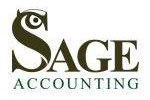Paying tax without a reference number
HMRC’s administration is suffering significant backlogs, including the issuing of new unique taxpayer reference (UTR) numbers. As the payment deadline for 2021 is fast approaching, how can a payment be made if the UTR hasn’t been issued?

The pandemic meant that many of HMRC’s staff were reallocated, which has had a knock-on effect on various departments. One area that has been affected is the processing of the SA1 form, meaning that many taxpayers are struggling to obtain a unique taxpayer reference (UTR) number, which is required to submit the tax return and to make the payment of tax. The UTR is used as the reference for the payment of the tax liability, and is used by HMRC to match the payment to the correct taxpayer.
However, it seems inevitable that some taxpayers will not receive their UTR by 31 January 2022. If that includes you, to avoid any problems you should generate a payslip online using your NI number instead of a UTR. You will then need to send this by post with a cheque payment. The cheque should also have the NI number on the reverse. This will allow HMRC to match the payment to the account and negate any possible late payment penalty.
Related Topics
-
Directors’ fees - can you escape PAYE?
You’ve been asked to join the board of a company in a purely advisory role. For tax and NI efficiency you want your fees to be paid to your own company. Does this arrangement fall foul of HMRC’s off-payroll rules?
-
P46 (car) deadline
-
Filing deadline for self-assessment tax returns

 This website uses both its own and third-party cookies to analyze our services and navigation on our website in order to improve its contents (analytical purposes: measure visits and sources of web traffic). The legal basis is the consent of the user, except in the case of basic cookies, which are essential to navigate this website.
This website uses both its own and third-party cookies to analyze our services and navigation on our website in order to improve its contents (analytical purposes: measure visits and sources of web traffic). The legal basis is the consent of the user, except in the case of basic cookies, which are essential to navigate this website.